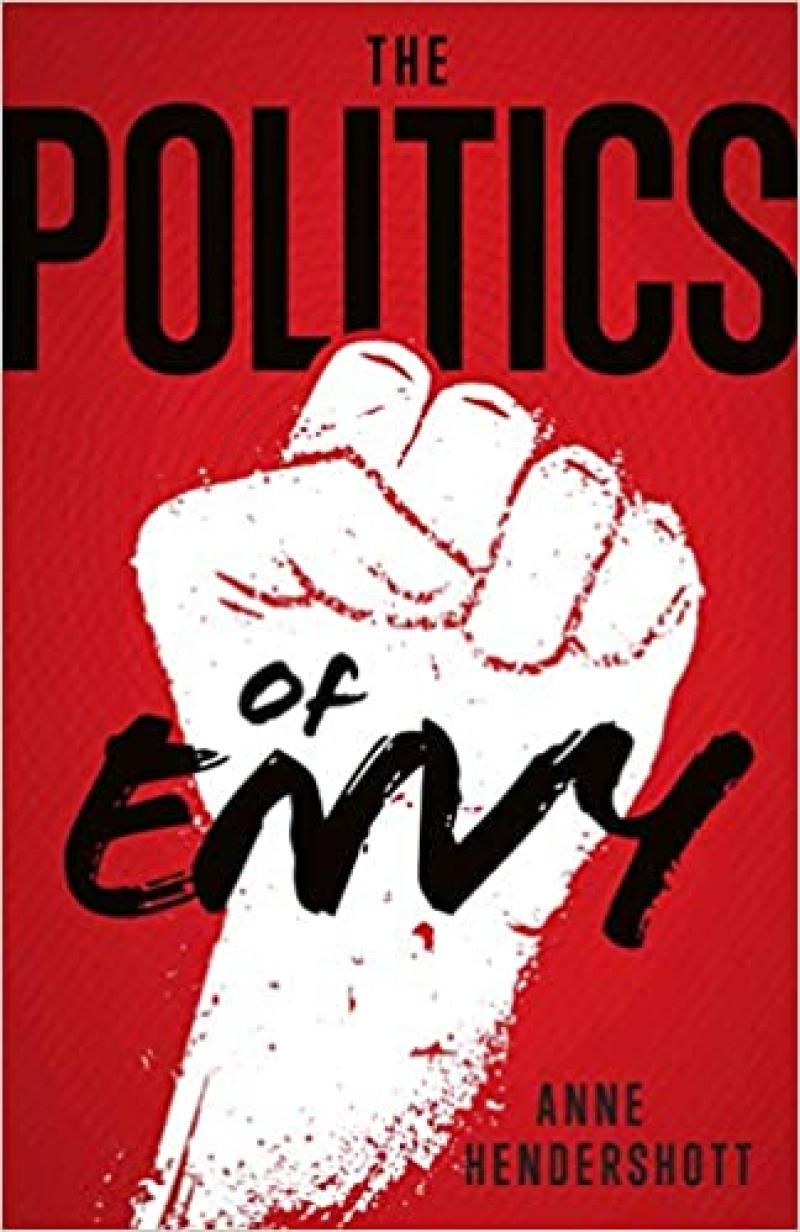The Politics of Envy
By: Stella Morabito



The Politics of Envy by Anne Hendershott — Alexander Solzhenitsyn noted: “Our envy of others devours us most of all.” This observation is at the core of Hendershott’s extraordinary book, which is a desperately needed investigation into that destructive human emotion.
Envy is the main force behind today’s polarization, unrest, and violence. Hendershott really nails the green-eyed monster, tracing its corrosive power from ancient times to the modern practice of scapegoating in politics, in academia, in social media, and even in religion, where the “social justice gospel” subsists on cultivating envy. Advertisers, demagogues, and media figures stoke envy as a path to power. Envy is also the driving force behind excessive taxation, regulations, and all manner of social control by the state.
Hendershott does a superb job of outlining how envy poisons human relationships and sows misery throughout society. As a sociologist, she draws from Rene Girard’s groundbreaking work in developing the theory of “mimetic desire.” Girard argued that “people desire objects and experiences not for their intrinsic value but because they are desired by someone else .” So we tend to mime or imitate the desires of others, thereby coveting the shiny objects that we think we want. The results are deep-reaching and ugly for society.
When the envious feel frustrated as have-nots, they become obsessed. They target for destruction those they envy, even if it means great cost to themselves. Hendershott sheds much light on Girard’s contention that envy is the primary force behind all violence. Indeed, we see it in mobbings of successful academics, in cancel culture, in rioting, looting, and in all horrific crimes motivated by envy.
In a chapter on antisemitism, Hendershott notes that Jews in 1930s Germany, envied for their success, were described as having “the Jewish advantage.” As I read that, I was unsettled by its striking parallel to the concept of “white privilege.”
Envy can’t be eliminated, but we can try to control it. Hendershott cites Girard’s call for a new “heroic attitude” through Christian charity as the only way to end the cycle of envy, violence, and revenge. The Politics of Envy is an eye-opener. It deserves to be widely read because it is critical medicine for our angst-ridden times.
When toxic envy grows unchecked, it will inevitably destroy an individual, a family, a society even a civilization. In our day, envy has reached its tipping point, fueling acts of anger, violence, and revenge in America s cities and corporate boardrooms.
In this timely and brilliantly written book, Anne Hendershott argues that the political class, social media, and advertisers have created a culture of covetousness by relentlessly provoking us to envy others and to be envied. The result is not surprising: a deeply indignant and rapacious generation that believes no one is more deserving of advantages and rewards than they.
Hendershott explains how envy leads to resentment, which eventually erupts into violence and rage, malicious mobs, cancel culture, and the elevation of dysfunctional political systems such as socialism and Marxism.
The Politics of Envy is the first book to provide a sociocultural probe into the root cause of the deadly sin of envy, and it charts a proven path out of this disordered and destructive thinking. From this pivotal, vitally important book you'll also learn:
- Why envy cannot be defeated by politics and requires a heroic attitude to defeat
- How social media's illusion of intimacy has fueled the mobs
- The difference between bullying and the envy-driven cancel culture
- The Marxist roots of Liberation Theology
- Why students have always been an easy target for the cult of socialism
- Why the truly envious believe that no one is more deserving of advantages and rewards than they
- How today's culture of envy traces its roots to the 1950s
 Article is LOCKED by author/seeder
Article is LOCKED by author/seeder




